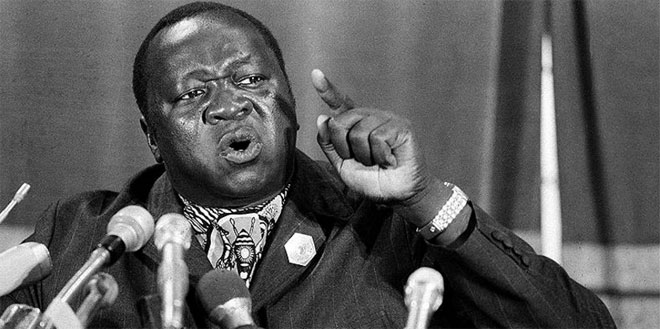
“This leads to peripheral resource allocation to football by us all. By resource allocation I mean the time, the HR [human resource] and the finances…Without enough resources, we will definitely have no one minding the old sports law and lack of policies that could enforce development of sports, decaying and insufficient sports infrastructure, and struggling national teams representing Uganda,” he warned.
It hasn’t always been this way.
When The Cranes last qualified for AFCON in 1978, Idi Amin Dada was the country’s president. His passion for sports in general, boxing and football in particular, knew no bounds – as did his reign of terror.
Perceiving sportspeople as ambassadors, national treasures in fact, he loathed any discomfort suffered to them.
A story is told about a time shortly before the onset of the 1978 campaign; the third consecutive time in Amin’s nine-year presidency Uganda was featuring in the continent’s much coveted football showpiece.
After pep talking the team – the best Uganda has ever assembled – “Big Daddy”, Amin’s nickname, fielded questions as he routinely did to check if there was still any unresolved issues perturbing the players.
Denis Obua, an immensely gifted winger, shot his hand up. All was well with them as far as football was concerned, he reportedly said. They were only distressed by a comment in the government-owned newspaper that had criticised the team’s selection.
Apparently, the editor, Sammy Kateregga, had taken umbrage that Peter Okee and Bidandi Ssali, the team’s coach and manager respectively, had picked the entire first team players from KCC FC because they were strongly affiliated to it. The squad had just won the CECAFA Club championships and Amin was a big fan.
Without a second’s thought, Amin reportedly declared the editor a “national enemy” and fired him then and there.
“Any other problem?” Amin reportedly asked the players. None surfaced. The team proceeded to Accra, Ghana and did one better than they had in the previous campaign where they had stopped in semi-finals.
On March 16, 1978, The Cranes lined up against the Black Stars of Ghana for the final of the 11th edition of AFCON. They were beaten 0-2 and only because the Ghanaians ensured they completely exhausted them before the game, according to Abbey Nasur Odero; one of the team’s strikers.
“Consider this: the Ghanaians put us on a long bus trip from Kumasi to Accra through a very rough road. We arrived completely exhausted. Then, in the hot and humid climate of the coastal city, air conditioning in our hotel ‘mysteriously’ failed to work,” Odero told the Daily Nation in an August 2012 interview.
“Our rooms, which didn’t have nets, hosted swarms of mosquitoes; in the morning, some players reported they hadn’t slept a wink. I don’t know how all this was accidental. But we took to the field weakened,” added Odero.
The 1978 finals marked the apex for Ugandan football. Amin was deposed a year later. His fall took The Cranes’ down with it. With every failing campaign thereafter – including thrice when Uganda failed to feature altogether – the longing for a sports loving president grew in intensity.
The 23-man Cranes team that broke Uganda’s 39-year jinx and that is set to represent the country in Gabon compares in no way to its predecessor in 1978. This is in spite of the fact many of its current members play some form of professional football in countries like South Africa, Ethiopia, Vietnam and Lebanon.
As fate would have it, The Cranes’ opening match on Tuesday, January 17, at the Port Gentil stadium is against Ghana.
The Black Stars have since they beat The Cranes in 1978 gone on to shine brighter with 15 appearances at AFCON and three more at the World Cup – the greatest sports event on earth.
So have Egypt and Mali, which Uganda is also grouped with. The Pharaohs have appeared at AFCON 15 times since 1978, winning the title five of those times, while the Eagles have qualified eight times.
The Cranes, meanwhile, have concentrated their dominance on the Council for East and Central Africa Football Associations (CECAFA) Cup – a boring tournament that lacks any serious competition. Such is its dullness that an increasing number of people wonder why Uganda still takes it seriously.
For instance, half the membership of CECAFA (which, in actual fact, should be CEAFA since there’s no longer any Central African nation in it) has never qualified for AFCON since the competition’s inception six decades ago. Most are even not known as footballing nations. This is the environment in which Uganda is king with a record 14 titles. It also confirms The Cranes ranking as the underdogs of Gabon. But then, as Onyango says, that is not such a bad thing.
RELATED STORY: Cranes Social media frenzy
****
editor@independent.co.ug
 The Independent Uganda: You get the Truth we Pay the Price
The Independent Uganda: You get the Truth we Pay the Price



